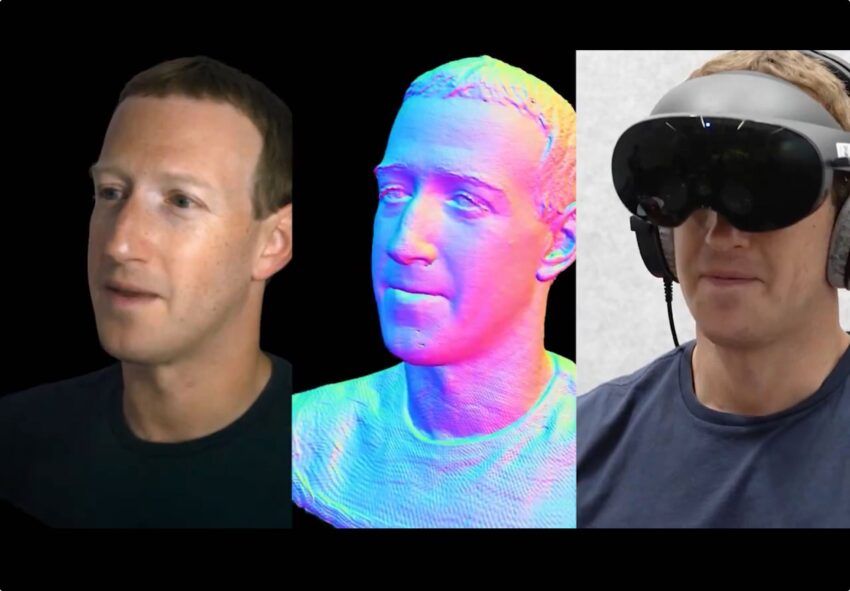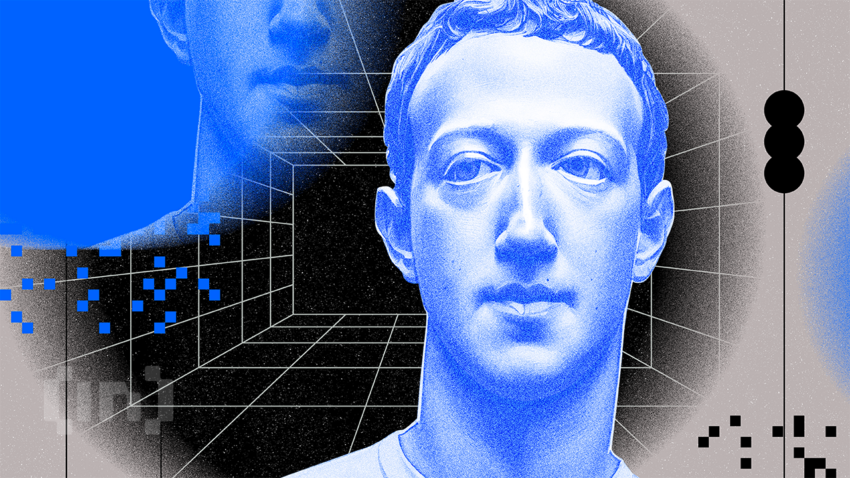Mark Zuckerberg unveiled Meta’s developments in photorealistic avatar development in a conversation with Lex Fridman. The technology uses special headsets and relies on noise-canceling headphones to improve immersion.
Despite previous ridicule over its apparent failed ambitions in the metaverse, Meta has progressed significantly in the development of avatars. CEO Mark Zuckerberg presented a state-of-the-art rendering of himself and podcaster Lex Friedman through Meta’s Quest 3 headset.
Meta Uses Advanced 3D Encoding Instead of Cartoons
The photorealistic depictions are the fruit of Meta’s Codec Avatar research that uses headsets to track facial expressions. Rather than mapping movements onto a crude 3D graphic, the codec encodes and compresses real-time facial data with Codec Avatar to send a realistic image to the other user.
Fridman said of the interaction:
“This really the most incredible thing I’ve ever seen.”

The interview was lauded on social media. Coder Jelle Prins wrote:
“Nine minutes into the Lex/Mark metaverse podcast, I completely forgot I was observing avatars.”
According to Zuckerberg, the technology is not consumer-ready since it relies on sophisticated artificial intelligence models and expensive head-scanning equipment. However, he said the company’s history of launching new products amid numerous hurdles bodes well in expediting the release date.
AI Is in Its Pre-iPhone Moment
Earlier this year, Meta appeared to have failed in its metaverse ambitions when it announced a pivot to AI. Its early avatar renderings lacked realism, and the user base for Horizon Worlds, a virtual world meant to function as an early gateway into the metaverse, stagnated.
However, it has become apparent that Meta has been active in both AI and the metaverse.
Read more: Top 11 Companies Building in the Metaverse in 2023
It launched new AI assistants for WhatsApp, Instagram, and Facebook earlier this month. Those assistants, coupled with its advancements in avatar tech, mimic competitor attempts to pre-empt the next killer consumer product: AI with a novel user interface.
AI heavyweight OpenAI recently introduced images and voice as new ways to interact with ChatGPT. The company’s CEO is reportedly in talks with SoftBank and former Apple designer Sir Jony Ive to develop an iPhone-like experience for AI.
Read more: ChatGPT Review: Everything You Need to Know
Do you have something to say about the new avatars Meta will use in its metaverse, its use of AI, or anything else? Please write to us or join the discussion on our Telegram channel. You can also catch us on TikTok, Facebook, or X (Twitter).
Disclaimer
In adherence to the Trust Project guidelines, BeInCrypto is committed to unbiased, transparent reporting. This news article aims to provide accurate, timely information. However, readers are advised to verify facts independently and consult with a professional before making any decisions based on this content. Please note that our Terms and Conditions, Privacy Policy, and Disclaimers have been updated.


